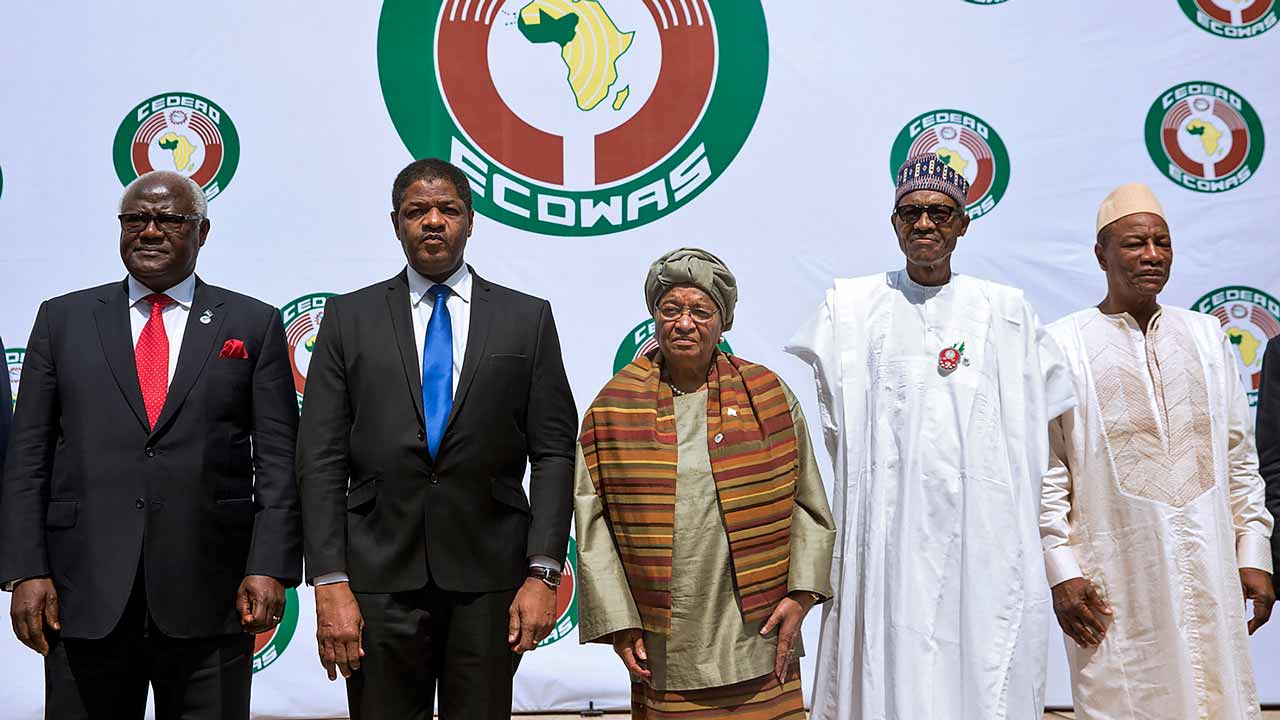
The Vice President, Prof Yemi Osinbajo, on Thursday said the Federal Government intended to collaborate with neighbouring countries to curb smuggling in Nigeria.
He said this while receiving a delegation of Manufacturers Association of Nigeria (MAN) led by its President, Dr Frank Jacobs, on advocacy visit on promoting Made-in-Nigeria Products.
According to the Vice President the problem with smuggling is an issue of implementation of agreements.
“The whole issue of policing the boarders to curb smuggling, we are looking at how we can work with neighbours to police the borders which at present are porous.
“In 2013 a Memorandum of Understanding (MOU) was signed by the Africa Union,’’ he said.
The Vice President said that manufacturing and the agriculture sectors might not survive in the country with the prevailing smuggling.
He said that patronage of local textiles by the government was implementable, adding that there was a very large market now in the country for local shoe manufacturers while some government agencies had placed orders for boots.
Osinbajo stated that the government’s tomato policy was to ensure self-sufficiency by 2018, adding that “we are trying to balance policies to ensure that we don’t run ahead of our local capacity.’’
He acknowledged that made-in-Nigeria goods were expensive, but said that government would ensure that the procurement people considered MAN’s proposal for sector-specific Margins of Preference (MOP) to give Nigerian products competitive edge in the markets.
Osinbajo thanked MAN for the advocacy visit, which he said, demonstrated the kind of partnership government expected from the private sector in implementing government policies.
“I thank you for your very active collaboration with us,’’ he said adding that MAN raised very important issues that were practical, important and possible to implement.
“There is no policy that is difficult to implement,’’ he said
Earlier, Jacobs said that MAN started the campaign for improved patronage of Made-in Nigeria products in 2016 in partnership with the Department for International Development of United Kingdom ans ENABLE team.
“Conceptually, the advocacy campaign was aimed at improving the patronage of locally manufactured products by Nigerians, the government and its Ministries, Departments and Agencies through an effective and inward looking procurement process.
“Undoubtedly the government remains the largest single spender in the economy and could drive industrial development and economic growth by increasing its patronage of locally-made products,’’ Jacobs said.
Acording to him public procurement is not just mere purchase, but strategic fiscal tool used by countries including advanced countries, to develop their manufacturing sector.
“It is an established fact that when we buy foreign goods we pay the returns to factors used in producing them in the originating countries.
“That is to say that we pay the wages, rent, interest and profit to foreign countries with our local resources,’’ he said.
The MAN president said that the manufacturing sector had huge inventory of unsold finished products.
He attributed it to poor patronage by the government, backlashes from smuggling, counterfeiting and general apathy of consumers with penchant for foreign goods.
He highlighted the benefits that could accrue from government patronage of uniforms needed in ministries of Interior, Defence, Education, Health, NYSC and the police force.
On the MOP initiatives he said they would boost government revenue through taxes and employment creation.
He said that MOP would in 2018 raise monetary output by 159 per cent from N2.5 trillion to about N6.6 trillion, expand SME size in five sectors by 122 per cent and create six million new jobs.
“Again at 6 per cent tax ratio, the government will generate approximately N400 billion in new tax revenue from only five sectors in 2018,’’ he said.
An industrialist and Chief Executive of Juhel Group, Mr Ifeanyi Okoye, told newsmen that the advocacy would ensure that reliance on made in Nigeria drugs would remove traces of fake and adulterated drugs in the country.
Okoye said MAN was partnering the regulatory agencies to curb the menace.










